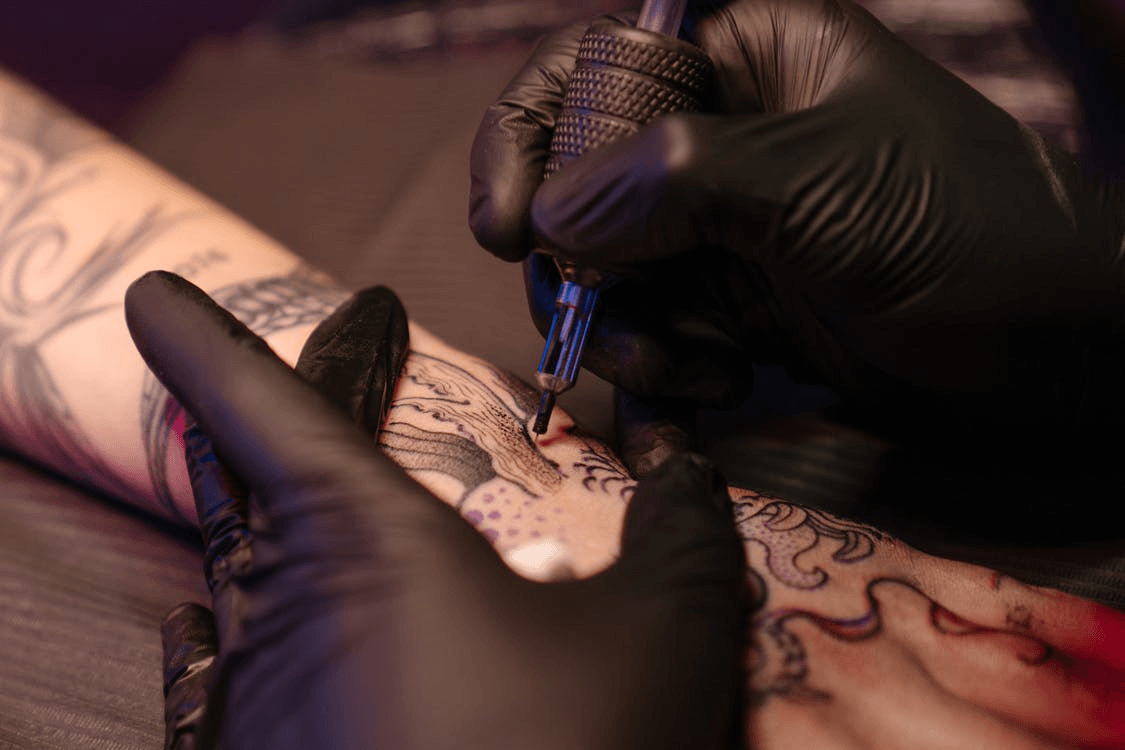
The act of tatoooing might irritate your skin even if your health is stable.
There is no one-size-fits-all solution to the question “Is Tattoo Safe On Vitiligo Affected Skin?” Vitiligo sufferers have been able to have tattoos without any issues, while others have had negative responses to the procedure. Individual skin type, stage of vitiligo, and patient expectations all play a role. In this article, we will cover the potential hazards associated with having a tattoo, as well as when you should really consider getting one.
Risks of Getting a Vitiligo Tattoo
While it is possible to get a tattoo if you have vitiligo, certain dangers are involved. The act of tattooing might irritate your skin, even if your condition is stable. Following a tattoo, you may notice that your vitiligo worsens.
As a result, before you go to the tattoo shop, think about the possible risks. You may then determine whether or not a tattoo is worthwhile for you.
Koebner Response
To get a tattoo, you must endure several microscopic punctures to your skin. Vitiligo may spread to other areas of your body, even if you don’t have it in the first place. The danger increases exponentially with the size of the tattoo. The Koebner reaction is triggered when your skin is injured or experiences trauma, i.e. burn. Those who have vitiligo or another skin disorder may be affected by this. During the tattooing procedure, puncturing the skin might result in the loss of pigmentation in that location.
Skin Changes
If you get a tattoo on your current vitiligo, the tattoo may not go well in the long run. While getting a tattoo to conceal your vitiligo might help, your vitiligo can alter over time. As new vitiligo patches emerge, you may need to return for other tattoos.
If you get a tattoo surrounding your vitiligo, the same thing applies. The border may seem unusual as it changes, and you may not like it. It’s worth noting that a specific design is more challenging to repair than a covering vitiligo tattoo.
Scientific Data
There is no scientific evidence that tattoos are safe on vitiligo-affected skin. The American Academy of Dermatology (AAD) strongly recommends that people with vitiligo not get tattoos because there is a risk of skin discoloration or other adverse effects. While some people experience the above-mentioned side effects of exposing their white patches to small punctures, many people have tattooed their skin with no side effects. Before getting a tattoo, be sure to ask the artist about their experience in tattooing people with vitiligo. It is also important to choose a sterile, reputable establishment. Be sure to follow all aftercare instructions to reduce the risk of infection or other complications.
So, when should you consider getting a tattoo?
Things to Consider Before Getting Vitiligo Tattoos
There are a few things that you should keep in check before getting a tattoo on vitiligo-affected skin:
- For how long have the white patches been there? – Tattoo artists recommend that your patches be at least seven-year-olds to get a tattoo in that area.
- Are there any recent patches that appeared on your skin? – You should thoroughly check for new patches on your skin before considering getting a tattoo anywhere on the affected area. The development of new patches makes you more vulnerable to getting a reaction because of the tattoo.
- Is there any movement of patches on the skin? – You should check if your patches have healed from somewhere and moved to another area. If this happens on your skin, your patches move, and you shouldn’t consider getting a tattoo.
- Are you getting light therapy for your vitiligo? – If you are being treated for your vitiligo via light therapy, you should not consider getting a tattoo as it can slow the treatment down and cause further complications.
- Are your patches changing colors? – When the patches are changing colors from white to pinkish-red and vice versa, you should not consider getting a tattoo.
If any of these is true for you, stay away from tattooing affected skin. If you really need to get a tattoo, contact a dermatologist, or you can treat vitiligo through Vitiligo Organics.
Vitiligo Organics is a topical cream that you can use to stabilize your vitiligo patches and get your skin ready for a tattoo within weeks. It has a lot of 5 reviews proving it to be an effective remedy for vitiligo. For further information about treating vitiligo, click here.
Conclusion
In short, you can get a tattoo on your affected skin if it has been stable for about two to three years (recommended seven years). But there can be risks involved, so consult a dermatologist before getting a tattoo and always go to a tattoo artist who has experience tattooing your delicate skin affected by vitiligo. These precautions are for skin affected by vitiligo. However, if you are a vitiligo sufferer but want to get a tattoo elsewhere, where your skin is healthy, you are safe to do so without expecting any complications.






